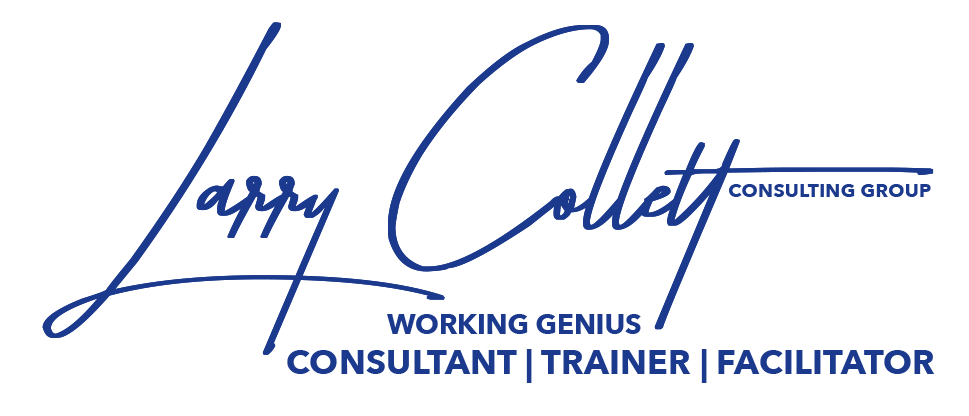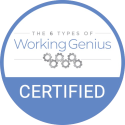Understanding the Concept of Working Genius
Exploring the Basics of Working Genius
The concept of Working Genius revolves around identifying an individual’s natural strengths in the workplace. It involves recognizing specific talents and abilities that allow someone to excel in various tasks and assignments. By understanding Working Genius, individuals can leverage their strengths to achieve better outcomes and make meaningful contributions to their teams and organizations.
Identifying Personal Working Genius
To unlock the potential of Working Genius, individuals must first identify their unique combination of strengths. This involves reflecting on past experiences, feedback from colleagues, and personal observations to pinpoint areas where one excels. By recognizing their personal Working Genius, individuals can focus on honing these talents and applying them in their professional endeavors effectively.
Utilizing Working Genius in Artificial Intelligence
In the context of future artificial intelligence, understanding the concept of Working Genius becomes crucial. By mapping the six types of Working Genius – Wonder, Invention, Discernment, Galvanize, Enable, and Tenacity – onto AI capabilities, we can explore how machines can replicate human strengths and enhance productivity. Leveraging Working Genius in AI can lead to innovative solutions and advancements in various industries.
Exploring the Impact of Artificial Intelligence
Examining the Influence of Artificial Intelligence on Industries
Artificial intelligence is revolutionizing various industries, from healthcare to finance and transportation. Through advanced algorithms and machine learning capabilities, AI is enhancing efficiency, accuracy, and decision-making processes in these sectors. Companies are leveraging AI to streamline operations, optimize resource allocation, and gain insights from vast amounts of data. As a result, businesses are experiencing increased productivity, cost savings, and competitive advantages in the market.
Implications of Artificial Intelligence on the Workforce
The integration of AI in the workforce is reshaping job roles and skill requirements. While some tasks may be automated by AI, new roles that require human creativity, problem-solving, and emotional intelligence are emerging. It is essential for individuals to adapt to this changing landscape by upskilling and acquiring the necessary competencies to collaborate effectively with AI technologies. Organizations must also prioritize employee training and development to ensure a smooth transition into a more AI-integrated work environment.
Ethical Considerations in the Development of Artificial Intelligence
As AI continues to evolve, ethical concerns surrounding data privacy, bias, and accountability become increasingly important. Developers and policymakers need to address these issues to ensure that AI technologies are deployed responsibly and ethically. Transparency in AI decision-making processes, fairness in algorithmic outcomes, and data protection measures are critical components that must be integrated into the design and implementation of AI systems. By fostering ethical practices in AI development, we can harness its potential while mitigating potential risks and ensuring a more inclusive and equitable society.
Identifying the 6 Types of Working Genius
Discovering the 6 Types
In order to understand the potential of Future Artificial Intelligence, it is crucial to identify the six types of working genius. These categories encompass the core competencies and skills necessary for AI to function effectively in various capacities.
Exploring Cognitive Intelligence
Cognitive Intelligence involves the ability to analyze data, think critically, and solve complex problems. In the context of AI, this type of intelligence is crucial for decision-making processes, pattern recognition, and learning algorithms.
Diving into Emotional Intelligence
Emotional Intelligence encompasses skills related to empathy, self-awareness, and interpersonal communication. While traditionally associated with human characteristics, integrating emotional intelligence into AI systems can enhance user experiences and improve social interactions.
Applications of Working Genius in AI
Integration of Working Genius into AI Systems
By incorporating the six types of working genius into artificial intelligence systems, we open up a world of possibilities for enhancing the performance and capabilities of AI. For instance, leveraging the strengths of discernment could lead to more accurate decision-making algorithms, while nurturing innovation within the AI framework can result in groundbreaking developments in various fields.
Optimizing AI Development Processes
Applying the principles of working genius to AI development processes can streamline workflows and lead to more efficient outcomes. Understanding each type of working genius can help teams allocate tasks effectively, ensuring that all aspects of AI development, from conceptualization to implementation, are addressed with the necessary expertise.
Enhancing AI Ethics and Morality
One essential aspect of AI that often gets overlooked is ethics and morality. By integrating the six types of working genius into the ethical considerations of AI development, we can build systems that uphold ethical standards and prioritize the well-being of society. This approach can lead to the creation of AI systems that align with human values and contribute positively to the advancement of society.
Challenges and Opportunities Ahead
Anticipated Hurdles
As we delve into the realm of integrating the 6 types of working genius into artificial intelligence, there are several challenges that we need to address. One of the main obstacles is ensuring that the algorithms designed to mimic human genius truly understand the nuances and complexities of human thought processes. This requires a deep understanding of psychology, cognitive science, and neurology to successfully replicate the multifaceted nature of human intelligence.
Potential Gains
Despite the hurdles that lie ahead, the opportunities that come with unlocking the potential of the 6 types of working genius in artificial intelligence are vast. By harnessing the power of strategic thinking, discernment, creativity, enablement, tenacity, and galvanization, we have the potential to revolutionize industries, enhance productivity, and create innovative solutions to complex problems. The fusion of human ingenuity with machine intelligence has the potential to redefine the future of work and propel us into a new era of technological advancement.
Future Prospects
Looking ahead, the synergy between human genius and artificial intelligence presents a myriad of possibilities for growth and development. The integration of the 6 types of working genius into AI systems opens up new avenues for collaboration, problem-solving, and creative innovation. By embracing these opportunities and tackling the challenges head-on, we can pave the way for a future where human potential is augmented and amplified by artificial intelligence, leading to unprecedented achievements and breakthroughs.


